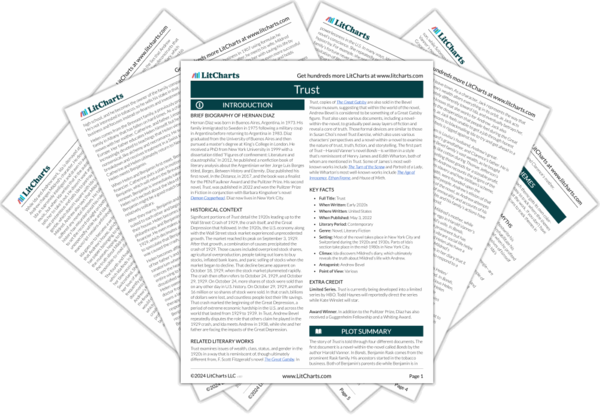The fact that one of the men who worked for Andrew offers Ida a different job soon after Andrew’s death, without any competition for the job, shows how status begets status. By being in proximity to Andrew, Ida has achieved a level of status that means that opportunities will be readily available to her from that point on. The idea that status begets status is similar to the idea, which Andrew resists, that money begets money. He wants to take credit for being a financial genius while his critics argue that with his vast wealth, it would be almost impossible for him
not to earn money from investments.
